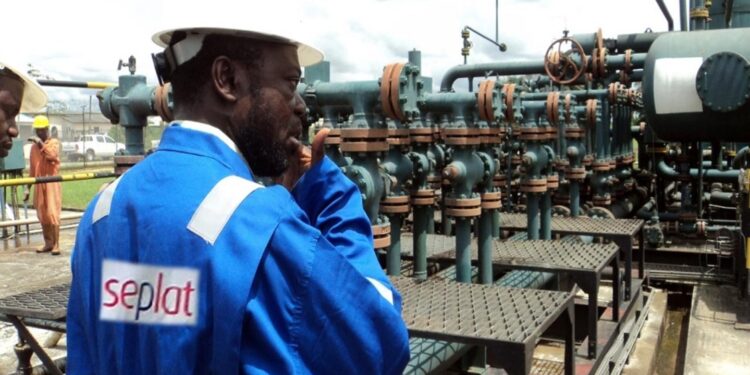
Seplat Energy Plc has announced a major milestone in its contribution to Nigeria’s gas development, revealing that it has installed over 850 million standard cubic feet per day (MMscfd) of gas infrastructure across the country to address domestic supply needs.
The company’s Chief Operating Officer, Mr. Samson Ezugworie, disclosed this during a press briefing on Sunday, noting that the initiative is part of the firm’s broader strategy to combat energy poverty in Nigeria and foster sustainable national development.
“Over the years, we’ve installed over 850MMscfd of gas infrastructure aimed at supplying domestic users across the country,” Ezugworie said.
He clarified that this installed capacity does not include the gas potential from assets acquired through the company’s recent deal with Mobil Producing Nigeria Unlimited (MPNU).
“With the MPNU acquisition, we’re exploring new growth opportunities within its vast gas reserves. We intend to utilise a significant portion of this gas to further power homes and industries across Nigeria,” he said
Driving Sustainability and Long-Term Growth
Ezugworie emphasized that Seplat’s operations are deeply rooted in sustainability and guided by a long-term vision that aligns with environmental, social, and governance (ESG) standards.
“Building a sustainable business requires vision, even when benefits are not immediately visible to today’s generation,” he said.
According to him, Seplat’s capacity development strategy is also a core component of its growth agenda. He revealed that 50 graduates were recently employed under the company’s graduate development programme and are undergoing extensive training across various departments.
“This reflects our belief in sustainability—developing talent pipelines to secure Seplat’s future leadership and technical expertise,” he said.
Ending Routine Flaring, Enhancing Efficiency
Seplat is also leading technological interventions in Nigeria’s gas value chain through a well-structured End of Routine Flaring (EORF) roadmap. The company is investing in strategic facilities aimed at significantly reducing Scope 1 and Scope 2 carbon emissions and boosting overall energy efficiency.
Ezugworie cited the Sapele Integrated Gas Plant as a key part of this effort. The plant’s first module is already operational and producing gas, while the full capacity is expected to be realized by 2025.
“At full capacity, the plant will significantly cut our Group’s Scope 1 emissions,” he noted.
Other critical flare-out projects currently underway include:
Western Asset Flares Out
Oben LPG Project
Sapele LPG Facility
Ohaji Flares Out Project
The company aims to end routine flaring across all its onshore assets by the second half of 2025.
Social Investments and Community Impact
In addition to infrastructure and sustainability, Seplat is making substantial contributions to Corporate Social Investment (CSI) in areas such as education, health, and energy access.
In 2024, the Seplat Teachers Empowerment Programme (STEP) trained 352 teachers, while 6,373 students benefited from the Pearls Quiz competition.
The company also equipped STEAM laboratories in four schools as part of its educational outreach.
